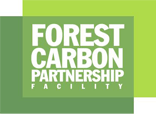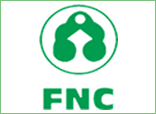The Readiness Assessment Package (R-Package) is a major milestone and comes at the transition stage from REDD+ readiness preparation to piloting performance-based activities. The R-Package is an important requirement by the FCPF for assessing progress, strengths and weaknesses, and seeking objective feedback from relevant national and sub-national stakeholders involved in Sudan’s REDD+ process. Sudan is preparing its R-Package at an advanced stage of its readiness preparation to benefit from the outcomes and feedback of the self-assessment to improve and consolidate its readiness preparation. The implementation of Sudan’s readiness program is scheduled to be completed by December 2019, in line to the additional grant agreement.
The objectives of R-Package study
- To synthesize and consolidate the findings of analytical studies carried out during the readiness preparation process
- To assess progress made by Sudan on REDD+ Readiness through multi-stakeholder consultation workshops at district, national and regional levels;
- To prepare an R-Package report on the basis of criteria and diagnostic questions in the R-Package Assessment Framework
- Results of assessment of progress made the readiness preparation;
- Results of the national multi-stakeholder self-assessment;
- Insights on significant achievements made and lessons learned in all sub-components;
- Identification of remaining gaps and areas that require further development in all sub-components;
- Next steps and planned activities for transitioning to the implementation phase
The self-assessment process
The self-assessment process was conducted during the period 23 December 2018 to 7 January 2019. In total, 74 representatives of nine stakeholder groups have participated in self-assessment process, of which 43 percent are women. Participants include PMU staff, state focal points, members of the Technical Advisory Committee, the Steering Committee, and the Technical Working Groups, as well as representatives from 10 civil society organizations and two development partners .
Table below presents the stakeholders groups that participated in Sudan’s REDD+ readiness self-assessment and the sub-components that each group considered
Stakeholder groups that participated in the readiness self-assessment
|
Stakeholder group |
No. of representatives |
Gender |
Readiness sub-components |
|
|
|
|
Women |
Men |
|
|
Programme Management Unit |
8 |
4 |
4 |
All sub-components |
|
States Focal Points |
21 |
5 |
16 |
All sub-components |
|
Technical Multi-Sector Advisory Committee |
3 |
1 |
2 |
Sub-component 2 |
|
National REDD+ Steering Committee |
9 |
4 |
5 |
Sub-component 2 |
|
Technical Working Groups |
20 |
11 |
9 |
Sub-components 2, 3 and 4 |
|
Civil Society organizations forums |
11 |
6 |
5 |
Sub-component 1.B |
|
Development Partners |
2 |
1 |
1 |
Sub-components 1.A, 3 and 4 |
|
Total |
74 |
32 |
42 |
|
Five sessions have been organized for the different stakeholder groups to perform their self-assessment of Sudan’s REDD+ readiness program. The self-assessments by the development partner were solicited through a dedicated form which was sent to relevant representatives of the World Bank and FAO, respectively. The objective of the self-assessment sessions was to provide a platform for consideration and discussions among the stakeholder on the progress made to date across all the sub-components of the readiness proposal against the FCPF RAF assessment criteria. The organization of the sessions included the following:
- A presentation on the progress made to date on the implementation of the readiness activities as described in the FCPF two grant agreements to ensure that all stakeholder groups are fully aware of all readiness activities, including in other components outside their mandate.
- A presentation on the self-assessment process which explained the context, the rationale, the objectives, advantages, methodologies and expected results.
- A dedicated form was provided to the participating stakeholders to write down the results of the self-assessment. The form is based on the criteria and diagnostic questions in the RAF, and provides space for scoring against the assessment criteria using color coded score ranges for each of the progress indicators (traffic lights). These codes range from 0-100, where each of the range represents a specific color. A score ranging 100-81 is represented in green, 80-51 is represented in yellow, 50-21 is represented in orange, and 20-0 is depicted in red. The score ranges are qualitative and enable aggregation of results across the stakeholder groups. The form also provides space for noting significant achievements and lessons learned, as well as gaps and issues the require further Development.
- Stakeholders were divided into breakout groups (e.g. state focal points) or worked as one group, according to the size of the groups or their mandate in the readiness implementation. Each group was asked to assign a chair to steer the discussions and a rapporteur to report the results of the self-assessment of its group.
- Diagnostic questions have been translated and explained by the consultant during the self-assessment session. Additional clarifications were provided during the self-assessment session upon requests from the stakeholders. Clarifications were mostly sought due to the fact the some questions suggesting readiness systems, such as the benefit-sharing mechanism, the ESMF and the FGRM are fully operational and are already being tested in the REDD+ implementation phase which is not true in the case of Sudan.. Therefore, the stakeholders were asked to also take into consideration the readiness activities that are planned to be completed by the end of the additional grant agreement (December 2019). For this reason, a presentation on the progress made in the implementation of the two grant agreements was necessary to inform the stakeholders on all the readiness activities that will be implemented in Sudan’s readiness program until December 2019.
- The guidance provided by the consultant and followed by the stakeholders in their self-assessment was to start by discussing the progress based on the diagnostic questions provided for each criterion – normally 1-3 questions per criteria – and to build a common understanding on whether the progress made meets these criteria. Then, the group collectively agreed on a single score using the scoring ranges and provided its feedback on significant achievements made, lesson learned, gaps and issues that require further development within or beyond the remaining time of Sudan’s readiness program implementation (December 2019) in bullet format.
- The outcomes of the self-assessment by the different stakeholder groups have been collected, combined and analyzed.
 English
English العربية
العربية 



